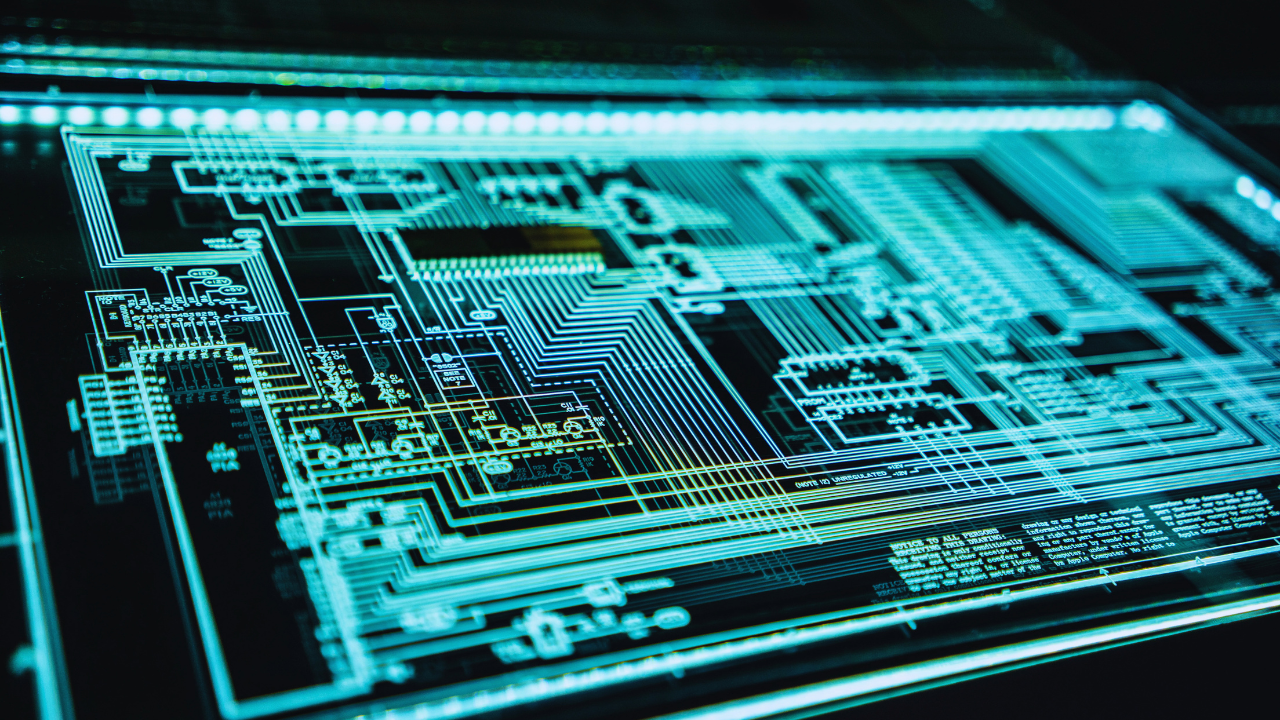Technology is undeniably the driving force behind human progress. Its influence is vast, reshaping every aspect of life from personal interactions to global industries. In communication, the digital age has brought about social media, instant messaging, and video calling, allowing people to stay connected across long distances. Business transactions are now conducted online, improving accessibility, efficiency, and global trade. The pace of technological advancement has also redefined education and healthcare, enabling remote learning and telemedicine, respectively. These innovations are not only increasing convenience but also opening up new avenues for growth and development, fostering a more connected and progressive world.
Furthermore, the rise of artificial intelligence (AI), machine learning, and robotics is revolutionizing industries, making them smarter and more efficient. AI is now an integral part of sectors like finance, healthcare, and manufacturing, helping to analyze data and automate processes that once required human labor. Robotics is transforming production lines, allowing for greater precision and speed. These technologies are enhancing productivity and creating new job opportunities, although they also raise questions about job displacement and the future of the workforce. As technology continues to evolve, its impact on society will grow, driving both challenges and opportunities for future generations.
Introduction to Modern Technology
Technology encompasses a wide range of tools, systems, and techniques that enhance our ability to perform tasks more efficiently. From the invention of the wheel to the creation of the internet, technology has always been a fundamental part of human progress. With the dawn of the digital age, technological advancements have accelerated at an unprecedented rate, bringing about radical changes in all aspects of life. The introduction of innovations like smartphones, cloud computing, and data analytics has simplified complex tasks and allowed for new forms of connectivity, interaction, and information sharing.
The modern era is defined by transformative innovations such as artificial intelligence (AI), machine learning, and the Internet of Things (IoT). AI, for example, has enabled machines to replicate human-like decision-making and learning, enhancing automation in industries ranging from manufacturing to healthcare. Machine learning algorithms are being employed to analyze data and improve efficiencies in areas like customer service and marketing. Meanwhile, the IoT is connecting everyday objects to the internet, allowing for smarter homes, more efficient urban infrastructure, and real-time monitoring of various systems.
As technology continues to evolve, its impact on society becomes more profound. While modern technology offers numerous benefits such as increased productivity, convenience, and connectivity, it also presents challenges. Issues such as cybersecurity threats, privacy concerns, and the ethical implications of AI and automation are raising important questions about the future. Balancing the advantages of these innovations with the need for responsible use will be crucial in shaping the future of technology and its role in our lives.
| Technology Innovation | Industry Impacted | Key Benefits | Potential Challenges |
| Artificial Intelligence (AI) | Healthcare, Finance, Retail | Increased efficiency, Automation, Personalization | Job displacement, Ethical concerns |
| Blockchain | Finance, Supply Chain | Transparency, Security, Decentralization | Scalability, Regulatory hurdles |
| Internet of Things (IoT) | Manufacturing, Smart Homes | Real-time data, Automation, Connectivity | Privacy concerns, Security risks |
| 5G Technology | Telecommunications, Healthcare | Faster internet, Better connectivity | Infrastructure cost, Coverage issues |
| Quantum Computing | Research, Healthcare | Solving complex problems, Data analysis | High cost, Limited scalability |
From the Industrial Revolution to the Digital Age: The Development of Technology
The history of technology spans centuries, marked by key turning points that have shaped the modern world. The Industrial Revolution, beginning in the late 18th century, introduced mechanized production, drastically transforming industries and economies. The second industrial revolution in the late 19th century brought mass production and electrification, enabling factories to operate at a scale never seen before. It was during this time that advancements like the assembly line and electric power began to reshape both the workplace and daily life. The third revolution, driven by information technology, laid the groundwork for the digital age, changing the way humans interact with machines and information.
Today, the digital age is characterized by the prevalence of the internet, mobile computing, and artificial intelligence (AI), which have revolutionized communication, work, and information consumption. The internet has connected the world in ways previously unimaginable, facilitating global trade, education, and social interaction. Mobile computing has made it possible to access information and services from virtually anywhere, while AI is reshaping industries by automating tasks and making data-driven decisions. This rapid evolution of technology has not only altered technological systems but also fundamentally shifted societal norms and economic structures, leading to a more interconnected, fast-paced, and digitally dependent world.
Impact of Modern Technology on Society
Modern technology has had a transformative effect on society, fundamentally altering how we socialize, work, and live. It has influenced every facet of daily life, from communication to transportation and healthcare. While technology has brought numerous benefits, such as increased efficiency, connectivity, and access to information, it has also introduced significant challenges related to privacy, employment, and social interactions. The rapid pace of technological advancements has reshaped societal norms, economic structures, and the way individuals engage with the world.
Communication is one of the main areas where technology has had a significant impact. The internet, social media platforms, and smartphones have revolutionized how people interact, enabling real-time global communication and collaboration. This digital transformation has also led to the rise of remote work, allowing individuals to work from anywhere and bridging the gap between people across different geographical locations. Furthermore, technology has brought innovations in healthcare, education, and entertainment, improving access to services and creating new growth opportunities. However, as technology continues to evolve, society must also address the potential drawbacks, including the digital divide, cybersecurity risks, and the ethical implications of emerging technologies.
Communication Revolution
The advent of the internet, social media, and instant messaging platforms has dramatically transformed communication. Information can now be shared globally in real-time, allowing individuals to connect across borders effortlessly. Platforms like Facebook, Twitter, and Instagram have made it easier for people to maintain relationships, whether for personal or professional reasons. Furthermore, the rise of smartphones has enabled constant connectivity, leading to the rise of remote work and collaboration across different time zones and geographical locations.
Healthcare Innovations
Technology has significantly enhanced the healthcare sector, leading to innovations that improve patient care and treatment outcomes. The introduction of telemedicine allows patients to consult with doctors remotely, making healthcare more accessible, particularly in rural or underserved areas. Robotic surgeries and advanced diagnostic tools have improved the precision of medical procedures, while electronic health records streamline patient management. Wearable health devices and mobile health apps also empower individuals to monitor their health, ensuring timely interventions and better decision-making.
Environmental Sustainability
Technology plays a critical role in fostering environmental sustainability. Innovations in renewable energy, like solar panels and wind turbines, are reducing dependency on fossil fuels and contributing to cleaner energy production. Smart grid technologies, energy-efficient devices, and electric vehicles (EVs) are helping conserve energy and reduce waste, while green technologies in industries promote sustainable practices. These innovations not only support environmental goals but also contribute to long-term economic savings and a reduction in environmental footprints.
Education and Learning
Technological breakthroughs have brought about a profound upheaval in the education sector. Digital platforms, e-learning tools, and online education have made learning more accessible to people across the globe, breaking down barriers to education. Virtual classrooms, interactive educational tools, and AI-driven platforms personalize learning experiences, enabling a more tailored approach to education. These innovations also make education more flexible and affordable, particularly for non-traditional learners who may have limited access to conventional educational institutions.
Automation and Artificial Intelligence
Automation powered by artificial intelligence (AI) is one of the most significant technological trends in recent years. AI is transforming industries by taking over repetitive and mundane tasks, such as customer service through chatbots or data analysis via machine learning algorithms. While these advancements improve operational efficiency and customer experiences, they also raise concerns about job displacement. As automation becomes more prevalent, its impact on employment and the future of the workforce remains a subject of ongoing debate.
Economic Impact and Job Market Transformation
Modern technology has dramatically influenced the global economy, driving growth and innovation across sectors. While it has created new industries and job opportunities, it has also led to significant changes in the job market. Automation and AI have replaced many manual and routine jobs, causing concerns about job displacement in industries like manufacturing, retail, and customer service. However, technology has also created a demand for new skills, leading to the rise of tech-focused roles such as data scientists, AI specialists, and cybersecurity experts. As technology continues to advance, it will be crucial for workers to adapt and acquire new skills to stay relevant in the evolving job market.
Social Implications and Digital Divide
While technology has brought numerous benefits, it has also highlighted the disparities in access to digital tools and resources. The difference between people with and without access to technology is known as the “digital divide,” and it continues to be a major problem..This divide can lead to social inequality, as people without access to technology may miss out on education, job opportunities, and other essential services. Bridging the digital divide is crucial for ensuring that technology’s benefits are accessible to everyone, regardless of socioeconomic background, geography, or infrastructure limitations.
Privacy, Security, and Ethical Concerns
As technology advances, concerns about privacy and security have become more prominent. With the widespread use of digital devices and online platforms, individuals’ data is often collected, stored, and analyzed, raising significant privacy issues. Additionally, the increase in cyberattacks and data breaches has made cybersecurity a critical focus. Ethical concerns surrounding the use of AI, such as biases in algorithms and the potential for surveillance, are also significant challenges. Addressing these issues requires robust regulations and ethical frameworks to ensure that technology is used responsibly and that people’s privacy and security are protected in the digital age.
Challenges Posed by Modern Technology
- Privacy and Security Concerns: As technology evolves, the amount of personal data collected has increased exponentially. This has raised concerns about data privacy and the potential for misuse. Cybersecurity threats, such as hacking and identity theft, have become more sophisticated, requiring organizations to invest heavily in safeguarding sensitive information.
- Digital Divide: Despite the rapid expansion of internet access, there remains a significant digital divide between urban and rural areas, as well as between developed and developing countries. Limited access to technology can exacerbate inequalities, especially in education and healthcare.
- Ethical and Social Implications: The rise of AI, genetic engineering, and other advanced technologies has raised ethical questions about their use and implications. For instance, the use of AI in military applications or surveillance systems has sparked debates about human rights and privacy. Similarly, concerns about the ethical use of data and the implications of genetic modifications continue to challenge lawmakers and policymakers.
- Dependence on Technology: Another significant challenge is the increasing dependence on technology. With the rise of automation, AI, and digital platforms, individuals and organizations have become more reliant on these systems. This dependence can lead to vulnerabilities, such as system failures or cyberattacks, which can disrupt entire industries.
Future Prospects: What Lies Ahead for Technology?
- Quantum Computing: Quantum computing holds the potential to revolutionize industries by solving complex problems that traditional computers cannot handle. This could lead to breakthroughs in fields such as cryptography, material science, and artificial intelligence.
- Virtual and Augmented Reality: The future of virtual reality (VR) and augmented reality (AR) looks promising, especially in sectors like entertainment, healthcare, and education. These technologies are poised to change the way we experience the world, offering immersive environments and interactive learning opportunities.
- Biotechnology and Genetic Engineering: Advancements in biotechnology, such as CRISPR gene editing, are opening new doors for personalized medicine and treatments. The potential to eradicate genetic disorders and enhance human capabilities through genetic modifications could redefine healthcare and human biology.
Wrapping Up
Technology has had a profound and far-reaching impact on society, reshaping the way we communicate, work, learn, and live. Its influence is evident in every sector, from healthcare to education, and from business to entertainment. Technology has brought about significant advancements that improve efficiency, productivity, and connectivity, making the world more interconnected and accessible. However, these benefits also come with challenges, such as privacy concerns, job displacement, and the digital divide, which need to be addressed as we move forward.
As we continue to embrace technological innovations, it is crucial to strike a balance between progress and responsibility. Ensuring that technology is used ethically, securely, and inclusively will help maximize its positive effects while mitigating its risks. The future of technology holds immense potential, but it will require collaboration and thoughtful consideration to ensure that it benefits all of society, fostering a world where technology serves as a force for good.
FAQs
How does technology impact our daily lives?
Technology influences nearly every aspect of our lives, from communication and education to healthcare and entertainment. It simplifies tasks, enhances productivity, and opens up new opportunities for learning and growth.
What are the key challenges of modern technology?
Some of the key challenges include data privacy issues, cybersecurity threats, the digital divide, and the ethical implications of emerging technologies like AI and genetic engineering.
How is technology affecting the job market?
Technology, particularly automation and AI, is transforming the job market by eliminating certain tasks while creating new opportunities in fields like data science, cybersecurity, and AI development. However, this shift also raises concerns about job displacement.
What role does technology play in education?
Technology has revolutionized education by providing online learning platforms, virtual classrooms, and personalized educational tools. It has made education more accessible, flexible, and tailored to individual needs.
What are some future technology trends to watch for?
Some future trends to watch include quantum computing, AI advancements, virtual and augmented reality, and biotechnology. These technologies have the potential to transform industries and society in the coming years.
Is technology making us more isolated?
While technology has made communication easier, it can also contribute to social isolation if it replaces face-to-face interactions. It is essential to find a balance between digital and real-world connections.
How can we ensure the ethical use of technology?
Ensuring the ethical use of technology involves establishing regulations, promoting transparency, and considering the social and environmental impact of innovations. It is important to address the ethical concerns surrounding AI, data usage, and automation.







